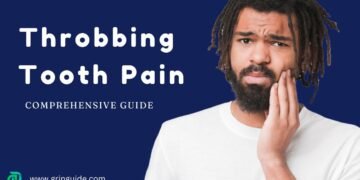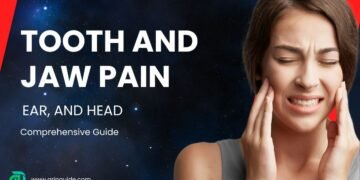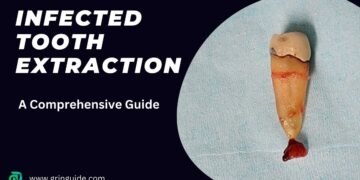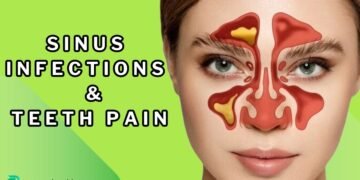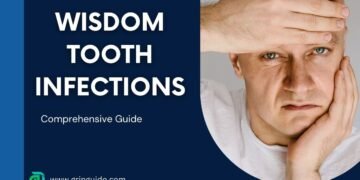Table of Contents
Imagine waking up in the middle of the night to a sharp, throbbing pain in your mouth that seems to radiate through your entire body. You try to ignore it at first, hoping it will go away on its own, but as the minutes tick by, the pain only intensifies. You realize you are experiencing unbearable tooth pain.
Dealing with unbearable tooth pain can be a distressing experience. Whether it’s a sudden toothache, jaw pain, or persistent wisdom tooth pain, finding relief becomes a top priority. In this article, we will explore the common causes of tooth pain and provide effective solutions to alleviate the discomfort.
10 Effective Home Remedies for Unbearable Tooth Pain
If you’re experiencing unbearable tooth pain, here are some home remedies that may provide temporary relief:
1. Use a Saltwater Rinse
Saltwater rinses can provide temporary relief for tooth pain. Dissolve half a teaspoon of salt in eight ounces of warm water and swish it around your mouth for 30 seconds before spitting it out. This can help reduce inflammation and kill bacteria.
2. Maintain Good Oral Hygiene
Proper oral hygiene is crucial for preventing tooth pain. Brush your teeth twice a day with a fluoride toothpaste, floss daily, use interdental brush and rinse with an antimicrobial mouthwash. This helps remove plaque and bacteria, reducing the risk of dental decay and gum disease.
3. Over-the-Counter Pain Relievers
Nonsteroidal anti-inflammatory drugs (NSAIDs), such as ibuprofen, can help alleviate tooth pain. Follow the instructions on the packaging and consult with your dentist or pharmacist if you have any concerns or medical conditions.
4. Apply a Cold Compress
If you are experiencing swelling along with tooth pain, applying a cold compress to the affected area can help reduce inflammation and numb the area. Wrap an ice pack or a bag of frozen vegetables in a thin cloth and apply it to your cheek for 15 minutes at a time.
5. Avoid Trigger Foods and Drinks
Certain foods and drinks can worsen tooth pain, especially if you have sensitive teeth. Avoid hot or cold beverages, acidic foods, and sugary snacks. Opt for soft foods that are easier to chew until the pain subsides.
6. Clove Oil
Clove oil has natural analgesic properties and can provide temporary relief for tooth pain. Apply a small amount of clove oil to a cotton ball and gently dab it on the affected tooth or gums. Be cautious not to swallow the oil.
7. Practice Stress Management Techniques

Stress can contribute to tooth pain and other dental issues. Incorporating stress management techniques into your daily routine, such as meditation, deep breathing exercises, or yoga, can help reduce stress levels and promote overall oral health.
8. Use a Soft-Bristled Toothbrush
Using a toothbrush with soft bristles can help prevent further irritation to sensitive teeth and gums. Hard or medium-bristled toothbrushes can cause enamel erosion and gum recession, leading to increased tooth sensitivity and pain.
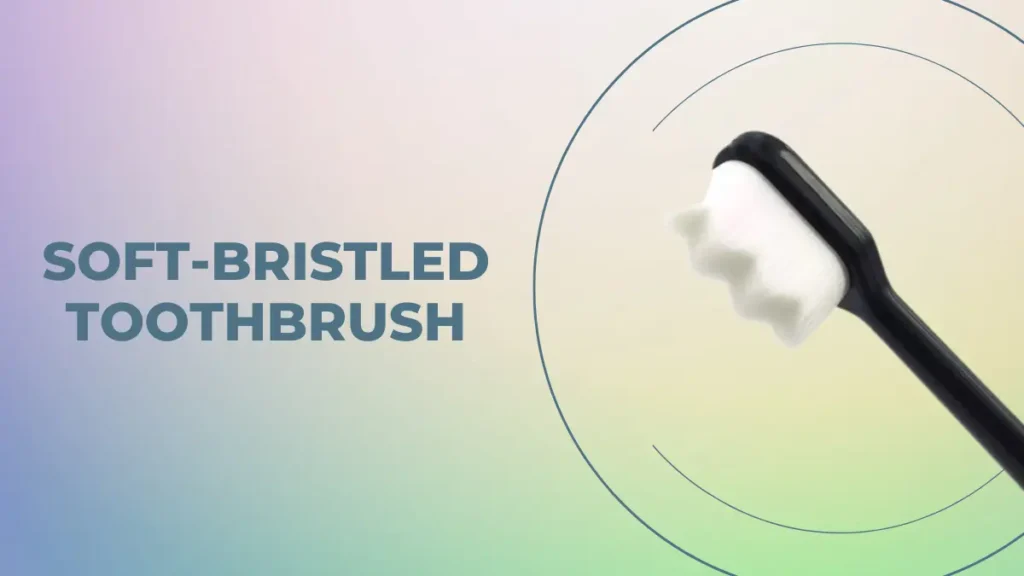
9. Schedule Regular Dental Check-ups
Regular dental check-ups are essential for maintaining good oral health and preventing tooth pain. Dentists can identify and address any potential issues before they become more severe, saving you from unnecessary pain and discomfort.
10. Seek Professional Dental Care
While these home remedies can provide temporary relief, it is important to seek professional dental care if the tooth pain persists or worsens. A dentist will be able to diagnose the underlying cause of the pain and provide appropriate treatment.
Fortunately, there are several solutions available at the dental office to alleviate unbearable tooth pain.
- For tooth decay, a filling or root canal therapy may be necessary to remove the decayed portion of the tooth and restore its structure.
- In cases of gum disease, a deep cleaning procedure called scaling may be performed to remove plaque and tartar from the roots of the teeth.
- Cracked or fractured teeth can often be repaired with dental bonding, crowns, or in severe cases, extraction may be necessary.
- Impacted wisdom teeth can be surgically removed to relieve pain and prevent further complications.
Top 10 Causes of Unbearable Tooth Pain
- Dental Decay: Tooth pain is often caused by dental decay, also known as cavities. When bacteria in the mouth produce acids that erode the tooth enamel, it leads to the formation of cavities. The exposed inner layers of the tooth can become sensitive and painful.
- Gum Disease: Gum disease, also known as periodontal disease, can cause tooth pain. As the gums become inflamed and infected, they can recede, exposing the sensitive roots of the teeth. This can lead to tooth sensitivity and pain.
- Tooth Infection: When dental decay is left untreated, it can progress to a tooth infection. The infection can reach the pulp of the tooth, where the nerves and blood vessels are located. This can result in severe tooth pain.
- Impacted Wisdom Teeth: Wisdom teeth, also known as third molars, can cause severe tooth pain when they become impacted. Impacted wisdom teeth can push against neighboring teeth, causing pain, swelling, and infection.
- Dental Abscess: Another cause of tooth pain is a dental abscess. This occurs when a bacterial infection forms a pocket of pus at the root of the tooth. The abscess can cause throbbing pain, swelling, and a bad taste in the mouth. If left untreated, a dental abscess can lead to serious complications.
- Teeth Grinding: People who grind their teeth, a condition known as bruxism, can experience tooth pain. The constant grinding and clenching can wear down the enamel, leading to tooth sensitivity and pain. Additionally, the excessive pressure on the teeth can cause them to become loose and painful.
- Dental Trauma: Accidents or injuries to the mouth can result in tooth pain. A direct blow to the teeth can cause fractures, dislodgement, or even avulsion (complete removal) of the tooth. The trauma can cause immediate and severe tooth pain, which may require immediate dental attention.
- Tooth Fracture: A cracked or fractured tooth can cause unbearable tooth pain. The fracture can expose the nerves and pulp, resulting in intense sensitivity and discomfort.
- Temporomandibular Joint (TMJ) Disorder: TMJ disorder is a condition that affects the jaw joint and surrounding muscles. It can cause tooth pain, jaw pain, and headaches. The misalignment of the jaw joint can put pressure on the teeth, leading to pain and sensitivity.
- Sinus Infection: Sometimes, tooth pain can be a result of a sinus infection. The upper back teeth are in close proximity to the sinuses, and when the sinuses become infected, the pressure can radiate to the teeth, causing pain and discomfort.
Understanding the Causes of Unbearable Tooth Pain
One of the most common causes of tooth pain is dental decay. When bacteria in the mouth produce acids that attack the enamel, it can lead to cavities. As the decay progresses, it can reach the inner layers of the tooth, causing sensitivity and pain. If left untreated, the decay can eventually reach the nerve of the tooth, resulting in excruciating toothache.
Gum disease is another leading cause of tooth pain. When plaque and tartar build up along the gumline, it can lead to inflammation and infection. This can cause the gums to become swollen, tender, and bleed easily. As the disease progresses, it can affect the supporting structures of the teeth, leading to tooth mobility and pain.
Cracked or fractured teeth are also common culprits of tooth pain. A cracked tooth can occur due to trauma, biting down on hard objects, or even grinding and clenching of the teeth. When a tooth is cracked, the nerves inside the tooth can become exposed, resulting in sharp pain when chewing or biting down.
Impacted wisdom teeth can cause severe tooth pain as well. Wisdom teeth, also known as third molars, usually erupt in the late teens or early twenties. However, due to lack of space in the jaw, they may not fully emerge or grow in the wrong direction. This can lead to impaction, where the tooth is trapped beneath the gumline and causes pain, swelling, and infection.
In addition to these common causes, tooth pain can also be a symptom of other underlying dental issues such as abscesses, sinus infections, or temporomandibular joint (TMJ) disorders.
Therefore, it is important to seek professional dental care to accurately diagnose the cause of the pain and provide appropriate treatment.
Overall, understanding the causes of tooth pain and seeking prompt dental care is crucial for finding relief. Regular dental check-ups and good oral hygiene practices can help prevent many dental issues that can lead to unbearable tooth pain.
When to Seek Professional Dental Care for Unbearable Tooth Pain
While home remedies can provide temporary relief, they do not address the underlying cause of the tooth pain. Seeking professional help from a dentist is crucial to diagnose the problem accurately and provide appropriate treatment to ensure long-term oral health.
Let’s review together some teeth signs which mean it should visit the Dentist:
1. Intermittent toothache
dealing with unbearable tooth pain is the importance of seeking immediate dental care. Ignoring the pain or attempting to self-medicate with over-the-counter pain relievers will only provide temporary relief and could potentially worsen the condition.
2. Bleeding Gums
If your gums bleed regularly, especially during brushing or flossing, it could be a sign of gum disease. A dentist can evaluate the condition of your gums and provide necessary treatment to prevent further damage.
3. Persistent Bad Breath
If you have persistent bad breath, even after practicing good oral hygiene, it may be a sign of an underlying dental issue. A dentist can determine the cause of the bad breath and provide appropriate treatment.
4. Jaw Pain or Clicking
If you experience persistent jaw pain, clicking, or popping sounds when you open or close your mouth, it could be a sign of temporomandibular joint (TMJ) disorder. A dentist can assess your condition and recommend appropriate treatment options.
5. Loose or Missing Teeth
If you have loose teeth or notice any gaps in your smile, it is important to consult a dentist. These could be indications of advanced gum disease, tooth decay, or other dental problems that require professional attention.
6. Oral Sores or Lesions
If you have any unexplained sores, ulcers, or lesions in your mouth that do not heal within two weeks, it is important to see a dentist. These could be signs of oral cancer or other serious conditions that require immediate attention.
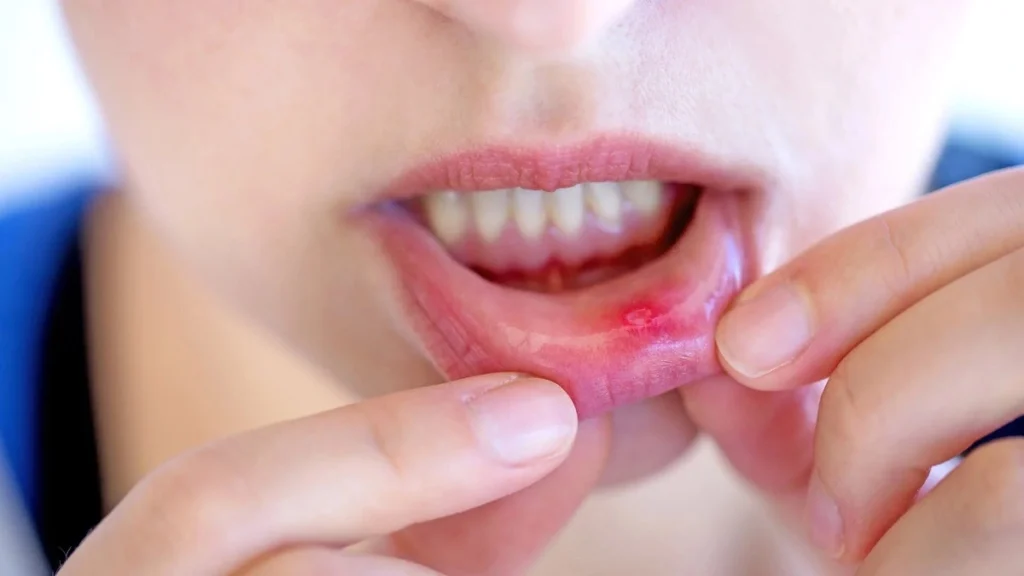
7. Unexplained Sensitivity
If you have sudden or unexplained sensitivity to hot or cold foods and beverages, it may be a sign of tooth decay or enamel erosion. A dentist can examine your teeth and recommend suitable treatment to alleviate the sensitivity.
Preventing Tooth Pain
Prevention is always better than cure when it comes to tooth pain. Here are some tips to help prevent Unbearable tooth pain:
1. Practice Good Oral Hygiene
Brush your teeth at least twice a day, floss daily, and visit your dentist regularly for check-ups and cleanings. Good oral hygiene can help prevent dental decay, gum disease, and other oral health issues that can cause tooth pain.
2. Wear a Mouthguard
If you play contact sports or grind your teeth at night, wearing a mouth guard can help protect your teeth from fractures and other injuries that can cause tooth pain. When you participate in contact sports, there is a risk of getting hit in the mouth, which can result in tooth fractures or even tooth loss.
Grinding your teeth at night, known as bruxism, can also lead to tooth pain and damage. By wearing a mouth guard, you provide a cushioning effect that absorbs the impact and protects your teeth from injury.
3. Avoid Sugary and Acidic Foods
Limit your consumption of sugary and acidic foods and drinks, as they can contribute to dental decay and tooth sensitivity. When you consume these types of foods, the sugars and acids can interact with the bacteria in your mouth, forming plaque and weakening the enamel of your teeth.
This can lead to cavities and tooth pain. By reducing your intake of sugary and acidic foods, you can protect your teeth and prevent tooth pain.
4. Use Fluoride Products
Fluoride is a mineral that helps strengthen tooth enamel and protect against tooth decay. Using fluoride toothpaste and mouthwash can help prevent cavities and reduce the risk of tooth pain.
Additionally, your dentist may recommend professional fluoride treatments to further strengthen your teeth and prevent tooth sensitivity.
5. Quitting smoking
Quitting smoking is a crucial step for maintaining good oral health. Here’s why:
- Heightened Sense of Taste: After quitting, you’ll notice more vivid smells and tastes within just 2 days. Smokers tend to season their food more because smoking damages the nerve endings responsible for taste and smell.
- Fresh Breath: Your breath will no longer smell like cigarettes. Non-smokers can smell cigarette smoke more acutely, and this can be a strong motivator to quit.
- Pain Sensors Return: While it might seem like a downside, your teeth might hurt after quitting. During smoking, your gums develop a protective coating that hides painful side effects. After quitting, you may experience oral sensitivity or pain, which is a sign that something needs attention.
- Reduced Oral Cancer Risk: Smokers have a tenfold higher risk of oral cancer compared to non-smokers. After quitting, your chances of developing oral or throat cancer decrease significantly within 5-10 years.
- Teeth Stains Fade: Smoking stains teeth, but the good news is that teeth whitening is possible. Options are available both at home and at the dentist’s office.
- Improved Gum Health: Gums may bleed during brushing after quitting due to improved circulation. Smokers are twice as likely to have gum disease, which often goes undetected.
- Mouth Tissue Returns to Normal Color: Smoker’s melanosis, where mouth tissue darkens, can occur. Although benign, it affects gum health. Within 36 months, your mouth tissue should return to its normal color.
6. Address Dental Issues Promptly
If you notice any signs of dental decay, gum disease, or tooth damage, seek dental treatment as soon as possible. Early intervention can prevent the progression of dental problems and reduce the risk of tooth pain.
Ignoring dental issues can lead to more serious problems, such as tooth infections or abscesses, which can cause severe pain. By addressing dental issues promptly, you can avoid unnecessary pain and discomfort.
By following these preventive measures, you can significantly reduce the likelihood of experiencing tooth pain. Remember, maintaining good oral hygiene, avoiding harmful foods, wearing a mouthguard, addressing dental issues promptly, and using fluoride products are all essential steps in preserving your oral health and preventing tooth pain.
Summary
In conclusion, unbearable tooth pain is not something to be taken lightly. It can be a sign of a serious dental issue that requires prompt attention from a professional. By seeking immediate dental care, considering various treatment options, and practicing preventive measures, you can alleviate the pain and prevent it from recurring in the future.
FAQs
-
How can I relieve tooth pain at home?
You can use cold compresses to reduce swelling and pain, take anti-inflammatory medications like ibuprofen, and ensure good oral hygiene with regular brushing and flossing. However, these are temporary solutions, and it’s important to see a dentist for a proper diagnosis.
-
When should I see a dentist for tooth pain?
You should see a dentist if your toothache lasts more than a couple of days, if you have severe pain, fever, trouble breathing or swallowing, swelling, or a foul-tasting discharge. These could be signs of a serious condition that requires immediate attention.
-
Can tooth pain go away on its own?
Sometimes minor tooth pain can resolve itself, especially if it’s caused by temporary irritation. However, persistent or severe pain should not be ignored as it may indicate a more serious underlying problem.
-
What treatments are available for tooth pain?
Treatment for tooth pain depends on the cause. It may include fillings, root canals, tooth extraction, or antibiotics if an infection is present. Your dentist will recommend the best course of action after a thorough examination.
-
What causes tooth pain?
Tooth pain can be caused by a variety of issues, including dental decay, gum disease, tooth fracture, infected gums, or an abscessed tooth. It’s a signal from your body that something isn’t right.
